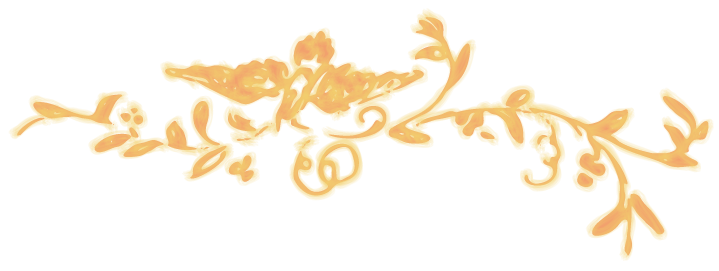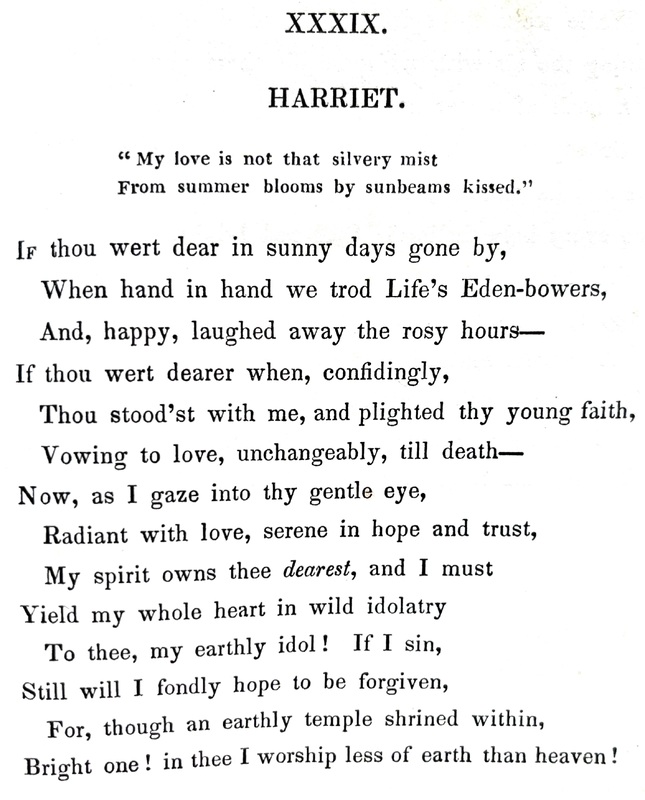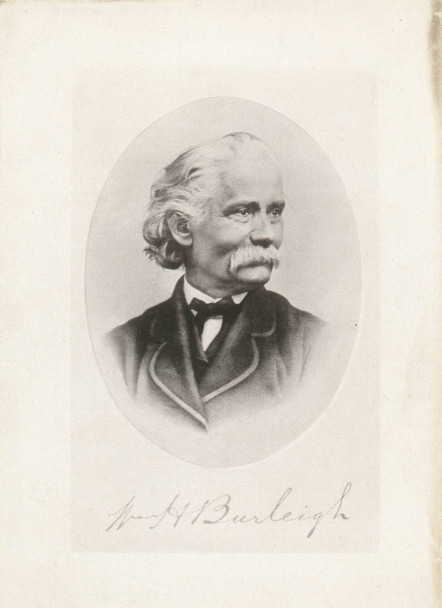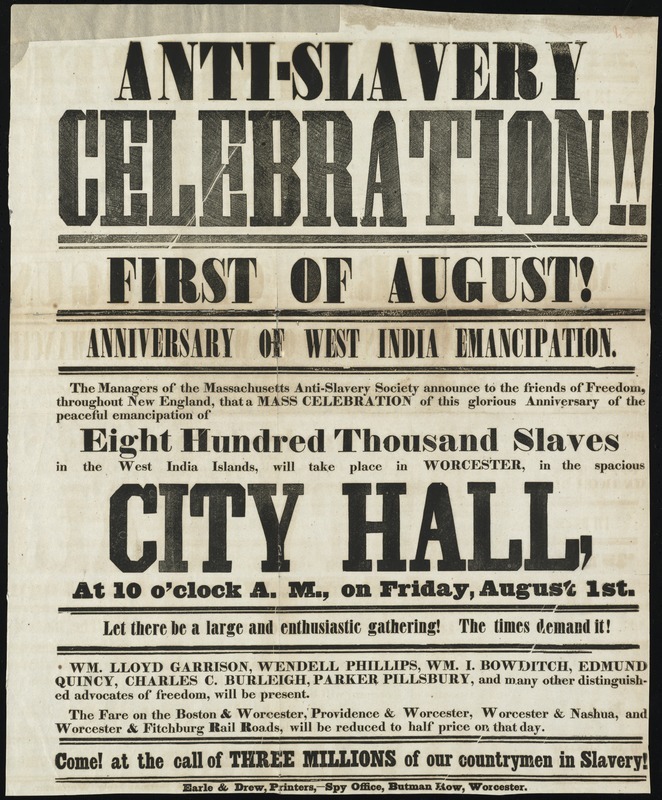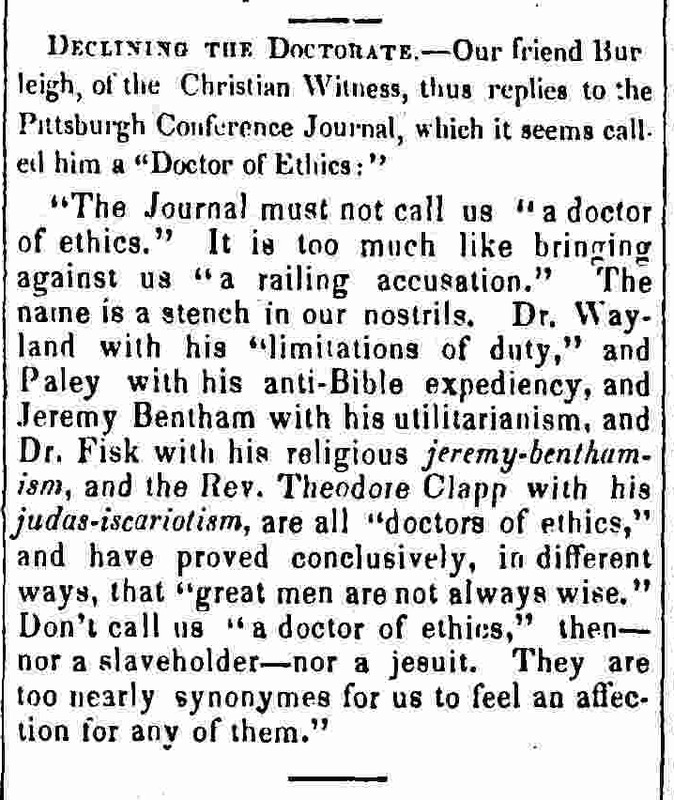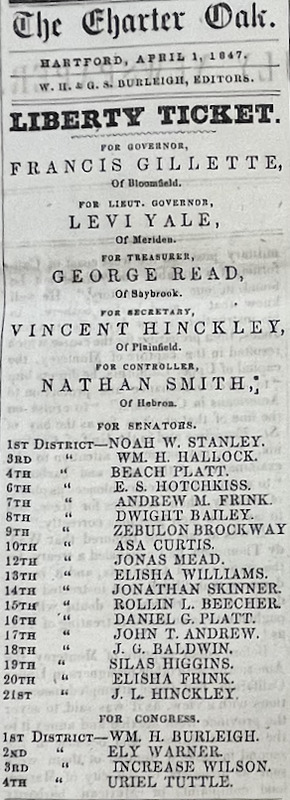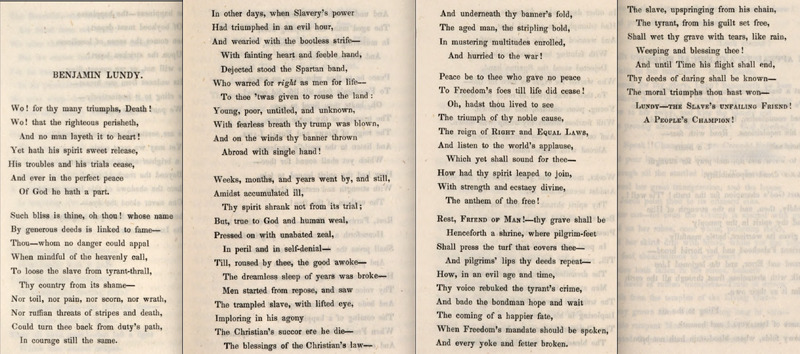William Henry Burleigh: Earnest and Affable Editor
William Henry Burleigh Basics
b. February 2, 1812, Woodstock, Connecticut
d. June 13, 1878, Woodland, New York
m 1. Harriet Adelia Frink (1812-1864), December 14, 1834, North Stonington, Connecticut
m 2. Celia Tibbits (1826-1875), September 7, 1865, Troy, New York
lived in Connecticut, Massachusetts, Pennsylvania, and New York at various points in his life
I. Overview of William Henry Burleigh's Life and Work
William Henry Burleigh was an eloquent and loving spirit, intertwining literature and justice, always ready to expand his views, while staying steady in his principles. He was the most capable editor among the Burleigh brothers, from a technical as well as political perspective, having received a genuine if scattered apprenticeship in the newspaper business.
William Henry Burleigh had a constant urge to combine literature, the arts, and reform. He tried to include what he considered high quality prose and poetry in the pages of his newspapers, and started literary journals at many of his stops (though with limited success). His own poetic output was substantial; he also did much to encourage the career of his younger brother George.
At the time of the Abolitionist schism, he was among the Liberty Party faction. This put him at odds with his own brother Charles, and many previous allies and friends. When he decided to call a truce in this faction fight, it came along with his leaving Abolition editing for a decade, before the new Republican party called forth his talents again to aid in the campaigns of 1856, 1860 and 1864.
William had married Harriet Frink in 1834, soon after the closure of the Canterbury Female Academy where he taught. There are very few hints about their marriage, or about her at all. By contrast - but perhaps affecting the quality of their relationship - a theme emerges in much of William's writing, complaining about not being paid, about being pinched for money, about subscribers being laggard in their dues, and so forth.
From 1863 to 1865, William's immediate family suffered many tragic losses: his father, his wife, one of his daughters and one of his sons all died in that short time span. William remarried at the end of 1865, to a woman who had become a friend and ally - Celia Tibbits. She was an important feminist organizer, and a religous liberal and free-thinker, who went on to be one of the first women ministers in the Unitarian church, occupying the same pulpit in Brooklyn, Connecticut that Samuel J. May had occupied back in the 1830s.
A tentative outline of his life's major chapters:
1812-1833 - Childhood, education, apprenticeship in journalism in Norwich, Stonington, and Schenectady
1833-1834 - Canterbury Female Academy and The Unionist; marriage to Harriet Frink
1834-1835 - Schenectady and The Wreath
1835-1837 - eastern Massachusetts: editing, and anti-slavery Agent
1837-1842 - Pittsburgh area, editing The Christian Witness and Temperance Banner
1842-1849 - Hartford, editing The Christian Freeman/The Charter Oak, and the The Non-Pareil
1849-1855 - Syracuse area, working for the New York State Temperance Association, some editing
1855-1871 - Harbor-master of New York CIty; Republican campaigning; death of first wife Harriet (1864); marriage to Celia Tibbits (1865); his death in March 1871.
II. William Burleigh's Editorial Style, Flair, Strengths & Liabilities
This is a good example of William's editorial writing.
THE FIRST OF AUGUST.
We love our own memorable day the Fourth of July—but we confess the First of August brings to our heart a purer, a more unalloyed delight. And as it approaches once more, it is a pleasure to recall to recollection some of the features of the great event which then transpired.
The spirit of humanity, which was awakening some sixty years ago in the British Empire by the labors of Clarkson and his associates, attained for its first object the abolition of the Slave Trade. But it did not stop at that partial achievement. It came next to consider the case of actual British bondmen. The boast had been that “Slaves could not breathe in England,” but a system of oppression prevailed in her West Indian Colonies; and the cry of her hundreds of thousands, pining amid their toils and stripes, had hitherto died away on the intervening ocean, and entered into no British heart. Now it was heard and a band of energetic souls embarked in the enterprise of emancipation. The struggle was long and arduous. It met with the same astonishing apathy, the same under current of interested sympathy with the oppressor, which has thus far borne back the cause of Freedom in our own land. But the truth long clamored down, triumphed at last. The stern and desparate [sic] opposition of a wide=spread and powerful West India interest, was at length overcome, and the work achieved.
A bill was passed, substituting in the place of unconditional slavery, a system of apprenticeship to be of force through the British West Indies on the 1st of Aug. 1834, with entire emancipation for one class of slaves in 1838, and the rest in 1840. This plan had its origin in the old prejudice that slaves must be prepared for freedom/ And this Apprenticeship was to prepare them! In two of the Islands, Antigua and Bermuda, a better wisdom prevailed, immediate emancipation was chosen instead of the Apprenticeship, and twelve years ago the coming 1st of Aug. 34,000 souls passed at once from the most rigorous bondage to entire freedom! At the late period of ’38, ’40, after an intermediate period of apprenticeship, more vexatious and intolerable to all parties concerned than unmitigated bondage, 800,000 [could be 600,000] more, more than ever unfitted for the boon, came at once into the possession of their liberty!
And what was the result! Exasperated by the worst wrongs that man can inflict on man; smarting from the recent scourge of the task-master, or just emerging from the thousand more vexatious inflictions of the apprenticeship—outnumbering the enervated whites, their recent injurers, in some islands at the rate of thirty to one, and in all on an average, or more than six to one—they signalized, did they not, the first hour of their liberty with carnage and blood? It was an hour, was it not, of merciless revenge, of fierce triumph on the part of the emancipated, wiping out the long score of their wrongs in the blood of the whites? It was in their power. And the wounds of their spirit were still fresh and bleeding. It was feared by their oppressors. A voice within them bade them tremble lest the hour of Freedom should be the hour of retribution. And on that last night of July, as the last sands were running in the hour-glass of Slavery, when many thousands of their long enslaved and bitterly wronged bondmen were about to rise from their chattelism, as free and far more powerful than themselves, the planters of Antigua watched away the anxious hours behind bars and bolts and arms, fearing the fire and carnage they had so often predicted.
But was it so? Was it a scene of wild tumult and consternation? Where were they, the candidates for freedom, at that eventful midnight? Not mustering darkly around the banner of insurrection.—Not scattering firebrands, arrows and death, among their guilty oppressors, now in their power; but gathered in God’s temples, pouring out their grateful in God’s temples, pouring out their grateful souls in prayer—yes, on their knees, with streaming eyes and bursting hearts, lifting their hands to heaven in transports of grateful joy! A more thrilling scene can scarce be found in human history. In one word, the great change from Slavery to Freedom took place not only without bloodshed and confusion, but with less of trouble and suspension of business than would attend the simultaneous transfer of as many free New England laborers from one employer to another.
Years have now passed away since this glorious measure was achieved! And with all its results it has gone upon the page of history. We have, indeed, had rumors of trouble and tumult in the West Indies. “The wish has been parent” for the most part, to such reports. They had been so confidently predicted, that many a prophet of evil could not refrain, in the utter absence of facts, from fashioning some sort of fulfillment to his prophesyings. The slightest disorder, whether resulting from the hard-handed policy of the whites, or from the just sense and exercise of liberty on the part of the new freemen or from any other cause however disconnected with the liberation of the blacks has been magnified and heralded through the world. It was poor comfort and could not last. Even the N.Y. Observer grows tired of it; and the secular press, after years of resistance, begins to admit that West India Emancipation was a peaceful and blessed event—that 800,000 slaves were at once “turned loose,” and by their magnanimous conduct, by their quietness and industry and rapid rise in civilization and refinement, have falsified and put to shame every prediction of evil.
When shall this great lesson be heeded by our country?
The Charter Oak, New Series, 1:30:2 July 30, 1846
III. "Declining the Doctorate"
This brief piece "Declining the Doctorate," comes from early in William Burleigh's tenure as editor of the Pittsburg Christian Witness. It was reprinted in the Pennsylvania Freeman by his friend, John Greenleaf Whittier. Burleigh balances wit and righteous anger against hypocrisy in a delicious blend. He was near the top of his game as both a writer and an editor here. The "Journal" in question was the "Pittsburgh Conference Journal" of the Methodist denomination.
The Journal must not call us "a doctor of ethics." It is too much like bringing against us "a railing accusation." The name is a stench in our nostrils. Dr. Wayland with his "limitations of duty," and Paley with his anti-Bible expediency, and Jeremy Bentham with his utilitarianism, and Dr. Fisk wth his religious jeremy-bentham-ism, and the Rev. Theodore Clapp with his judas-iscariotism, are all "doctors of ethics," and have proved conclusively, in different ways, that "great men are not alwayss wise." Don't call us "a doctor of ethics," then—nor a slaveholder—nor a jesuit. They are too nearly synonymes for us to feel an affection for any of them.
"Declining the Doctorate," from the Pittsburgh Christian Witness, reprinted in Pennsylvania Freeman 5:2:3, September 20, 1838.
IV. Political Abolitionism
William Burleigh belonged to all three of the major anti-slavery political parties, in succession: The Liberty Party, the Free-Soil Party, and the Republican Party.
V. Poetry of William Henry Burleigh
The poetic themes taken up by William Henry Burleigh ranged across personal and political topics. Unlike his more literarily accomplished brother George, William rarely tried larger forms, content with shorter poems that could fit the niche in the journals and newspapers of the day. Over two dozen of his poems are in use as hymns, including translations into Tamil, Hawai'ian and Lakota, according to Hymnary.com.
William H. Burleigh was admired by other poets, most notably his fellow reformer John G. Whittier, who described him as a "gifted" when reprinting his memorial poem to Benjamin Lundy. While William's fame as a poet was simply another component of his overall reformer portfolio, the respect his efforts garnered provided him with the ability to mentor his younger brother when George was first gaining accolades for his work. The solicitious care that both William and Charles had for their youngest brothers Cyrus and George is touching, and it was effective, as both Cyrus and George became leading Abolitionist and reform figures in their own right.
The Burleigh team is assembling what we believe will be the first full catalogue of William's poetic works. Stay tuned for this development.
VI. William Burleigh's First Marriage to Harriet Frink
The core generation of Burleighs generally made marriages that were not only strong unions, but radiated out into other dimensions of social, political and artistic areas. William's first marriage, to Harriet Frink of North Stonington, is a major exception to this trend. The facts as they are currently known are flimsy, but suggest tension or resignation more than mutuality. So far no letters from Harriet have been uncovered, no photographs or portraits, no mentions in the columns of newspapers.
Frink family in North Stonington.
One thing is clear - the marriage itself, conducted in December of 1834, followed close on the heels of a string of tragedies and terror. September 1834 had witnessed the Canterbury authorities focusing on William for prosecution under the Black Law, given his prominence as a teacher at the school run by Prudence Crandall. Their legal efforts were rendered moot when the school was horrifically destroyed by a vigilante mob. That did not mean, though, that the efforts to pursue William legally were dropped. In any case, William quickly relocated to Schenectady, and after the December wedding took his new bride with him.
From her perspective, she was the youngest of ten children born to William and Wealthy Frink. Harriet's oldest sibling was eighteen years her senior. In 1833, when Harriet was 21, her mother died. Her older sisters were all married; she likely was fated to elder care for her father if she didn't marry.
There was another traumatic event, though, in the Frink family. On September 25, 1834, Harriet Frink's young nephew George E. Miner (1830-1834), only child of her sister Mary Ann and her husband Gilbert Miner. The promise of this young boy, and the agony of his death, is preserved in two poems by William Henry Burleigh, who was deeply affected by the loss.


